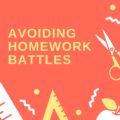Parents avoid many topics or just hope to never have to address them with their kids. One such topic is drugs. We all know the saying, “Small children, small problems. Big children, big problems,” and it may ring true in this case. So, how do you talk to your kids about drugs? Research shows that by talking openly with your teen about this subject, may in fact be the best defense against drug use (drugprevention.gc.ca).
Parent-teen relationship
Though it may seem like your teenager is from another planet, (or perhaps they think you are), your opinion matters to them. Sure, they may roll their eyes or shout “You don’t understand me”, but at the end of the day, your child will seek your input on important subjects.

When our children are little we are mindful that little ears are around and listening. The same applies to your teen. Even when you think they are not engaged, they are! Parents are role models for their children (of all ages) and should be clear on where they stand about drug use.
Possible reasons why teens use drugs
This is the age where many adolescents begin to experiment with new situations. There are several possible reasons why teens use drugs. Some of these may include:
- Peer pressure
- Low self-esteem
- Helping to feel better (e.g., managing feelings of anxiety or depression)
- Lack of parental supervision or monitoring
- Cognizant of an adult who uses drugs

Signs of drug use
Parents may not always be aware that their child is using drugs. Or, misjudge the behaviour as typical teen shenanigans. Possible signs that your teenager is experimenting with drugs are:
- Drastic change in their behaviour (e.g., mood swings, increased fatigue, withdrawn, change in appetite)
- Frequent absences from school
- Decline in academic performance
- Little or no motivation to do afterschool activities
- New set of friends
How to start the conversation
Open and honest conversations are the recipe for all positive parenting. According to Social Worker, Wendy Hofmann (MSW, RSW), “Talking about drugs won’t encourage your kids to use, they need education and coaching. The lectures don’t work. Promote good decision making, through reciprocal conversations that convey mutual respectful.”
To help get the conversation started, consider watching movies as a family related to drugs. We recommend the powerful example Beautiful Boy with Steve Carell and Timothée Chalamet.
No one likes a lecture, including your teen. When you talk to your child about drugs, remember to keep it simple, and consider several mini-discussions. Be positive as possible and actively listen to their points of view. Parents want to set their kids up for success. Teach them about their choices and consequences of their actions. If they find themselves in a difficult situation, teens need to know that they can always count on you without judgment in that moment.
A strong family attachment, involvement in community activities and positive peer relationships are critical influences to decrease the chances of drug use. Make these a priority in your teens life and don’t be afraid to talk to your children about drugs.
A special thank-you to Wendy Hofmann, MSW, RSW from Hofmann & Isaac Individual and Family Counselling (www.hofmannandisaac.ca) for her contributions to this article.
References:
- https://www.canada.ca/en/health-canada/services/health-concerns/reports-publications/alcohol-drug-prevention/talk-your-teen-about-drugs-communication-tips-parents.html
- https://www.drugabuse.gov/publications/principles-adolescent-substance-use-disorder-treatment-research-based-guide/introduction







